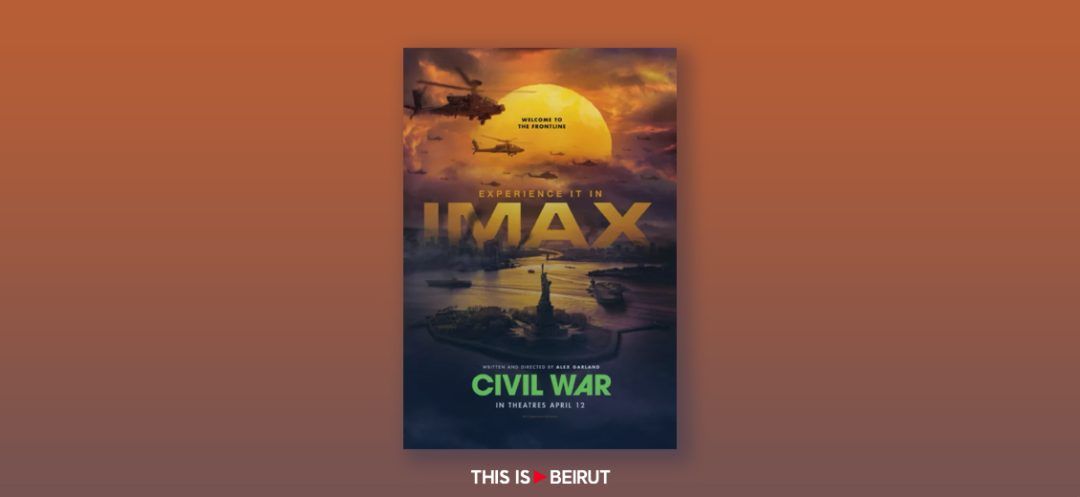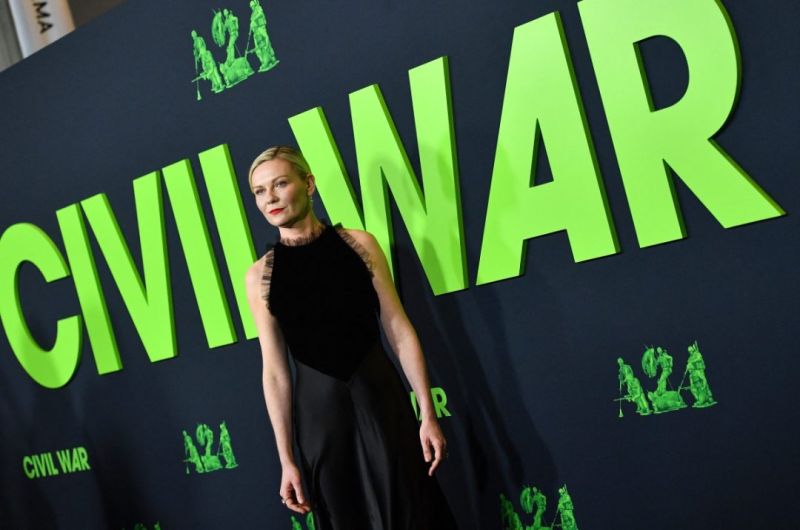
Kirsten Dunst takes on the role of a photojournalist in a United States ravaged by civil war in the shocking film Civil War, set to hit theaters on Wednesday. The movie serves as a dire warning of the potential collapse of public order in America, just months before the presidential election.
With its poster paying homage to Apocalypse Now, featuring a reddening sun on the horizon and a combat helicopter, Civil War is an ambitious project that aims to depict, with the utmost realism, the chaos and savagery that could threaten the United States in the near future.
 Civil War is an ambitious project that aims to depict with the utmost realism the chaos and savagery that could threaten the United States in the near future. Photo by Valerie Macon /AFP
Civil War is an ambitious project that aims to depict with the utmost realism the chaos and savagery that could threaten the United States in the near future. Photo by Valerie Macon /AFPThis time, hell is not in Vietnam but in Washington and the rest of a country engulfed in flames, faced with the secession of California and Texas. Violence and weapons are everywhere, terrorist attacks are a daily occurrence, and the fascist-leaning president (played by Nick Offerman) is entrenched in a White House resembling a green zone. The FBI has been dismantled, and military drones are attacking American civilians.
The suggested resemblance to Francis Ford Coppola's masterpiece quickly fades, as this high-budget independent film does not deploy the same resources and instead focuses the story on a small group of four war journalists.
Among them is a renowned photographer (Kirsten Dunst, making her return to the screen after her Oscar nomination for The Power of the Dog in 2022) who takes a young hothead (Cailee Spaeny, revealed in Sofia Coppola's Priscilla) under her wing.
Driven by idealism, these reporters brave all dangers in the hope of reaching the White House and securing an interview with the President of the United States.
The portrayal of journalism may be somewhat simplistic, but with just over six months until a tense election, the film resonates with the concerns of American citizens. It serves as a warning in the mind of its director, British filmmaker Alex Garland (known for the films Ex Machina and Men, and the novel The Beach, adapted for the screen by Danny Boyle).
The film's "three-term president" allows for a parallel to be drawn with the fear many Americans have in the event of Donald Trump's re-election. They worry that the Republican billionaire may refuse to comply with the Constitution, which limits the number of presidential terms to two, and refuse to leave office after four years.
On screen, the sources of the conflict or the ideology at play are deliberately omitted by Alex Garland. The focus is instead on the daily lives of the inhabitants, which have been plunged into horror.
In the United States, some have criticized the release of the film in the midst of an election campaign, fearing that it may add fuel to the fire. The director, for his part, believes that Civil War should serve as a catalyst for discussing the division of society and the rise of populism. He intends for the film's raw and realistic violence to act as a vaccination against war for the audience.
As the United States faces an uncertain future with growing political and social divisions, Civil War forces viewers to confront the worst-case scenario head-on. It serves as a stark reminder of the fragility of democracy and the consequences of unchecked hatred and extremism. While the film's depiction of a nation torn apart may be unsettling, it is a necessary wake-up call for a country on the brink of a critical moment in its history.
With AFP
Read more



Comments